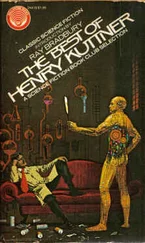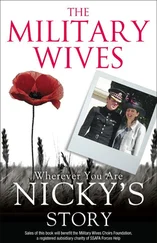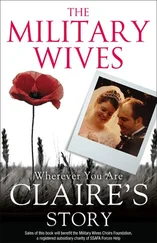1 ...7 8 9 11 12 13 ...17 THE MOON APPEARED between two slow clouds. Margaret told herself Martha was sleeping. The child slept sounder than most, did she not? Like a bear cub in winter, as Henry would say. He’d sung operatic cradle songs to her. He’d sung to them all. It’s a lovely thing, a man singing to a baby. Surely he was on his way.
The air had turned colder by degrees. Her feet were soaked, icy. A numbness had developed in her right leg and hip. How far had they walked? Ten, fifteen miles? Twenty? Christ, Lord. She had no way of gauging distance or time. Hours had passed, it seemed. John and Josephine would be out of their minds with exhaustion and hunger.
Margaret was second in line, shivering behind the lead savage. Two on horseback followed at some distance. John and Josephine were farther back still, beyond her view now. She glanced over her shoulder again. The Maori behind bared his teeth and thrust his chin forward. Please, God. Help us. They’d all come away wearing next to nothing—no gloves, no coats, summer stockings and thin soles. The damp seeped right through. Her heel caught on a slimy river stone. She teetered, letting out a ragged cry. The brute ahead turned and glared. How hateful, how menacing his look. As though he were the one so horribly wronged. His wretched animosity was unfathomable.
She bowed her head against the chill. She must concentrate, keep her wits about her. She’d be needed when Henry came. Above, in the trees, a horse snorted. Henry! There was a snap of branches, a rush of hooves. She turned around, seeking out her children, just as another five tribesmen rode down the hill and fell in with the others. In her despair she wet herself. They were so many now. Almost simultaneously she realized that Henry would not have proceeded alone. He’d have Mr. Bell alongside, and, at the very least, Messrs. Clark, Sully, Reed, and Freylock, all strong and strapping men, all excellent shots. It would have taken time to rally them. Though by now they would be assembled and on their way. Margaret worked on producing saliva, softening the putrid rag in her mouth. The weave was stiff, inflexible. She sawed with her jaw and bottom teeth. Broom-straw slivers broke away. She spit them out quietly, marking the trail for Henry.
They continued along the black river. Her cold wet drawers chafed. Both the children had wet their beds from time to time, and Josephine, poor mortified Josephine, had wet her white Easter frock in church. She’d not been to blame. The garrulous old vicar had gone on far too long. God, how her little girl had suffered.
A savage in the rear shouted out. Two dismounted and disappeared into the trees. The broad-faced one ran up to her, gesturing toward the ground. “Down.”
She filled her lungs with air and pushed hard, expelling the blasted rag finally. “Please untie me.” She spoke with difficulty, her ribs throbbing painfully. “Bring my babies. They’ll suffocate.”
The man jabbed a finger. “Down!”
“Have you blankets to spare? My big boy and girl are surely freezing to death.” Her teeth clattered in her head. “Have mercy, please. They’re only children.”
He advanced. “Down!”
She sank to her knees, her breasts aching. “Mightn’t you allow us to walk together? Surely that’s not asking too much, is it?”
He picked up the rag and rammed it to the back of her throat. She gagged, her eyes watering. He walked away, joining the clutch of low-speaking brethren.
Alone she lost balance and fell sideways. She saw with one eye the men returning from the bush. A boy pulled her up by the apron strings. They resumed walking, making first one confusing turn and then another. Hadn’t Henry maneuvered similarly on the way to his aunt’s viewing? Round and round he drove, passing the same public house twice. They’d missed the entire wake. The man had no sense of direction. But he’d have others with him now, men who knew the land by heart.
Toward daybreak the Maori paused to water the horses. One approached, chewing on something gristly. He pulled down on her chin with his dirty fingers and extracted the rag, tossing it aside. She worked her sore jaw and pleaded in a rusty voice.
“Please sir. I beg of you. Bring my babies. They’ll be in need of me.”
He grunted and pushed on her shoulder. She swayed and fell to a hard sit, her back to the children. A lanky lad, no more than twelve or thirteen, swaggered her way. She met his sleepy gaze and spoke slowly, distinctly. “ Bay-Bees. Fetch them, please.” Nothing registered in his flat eyes. He put a wedge of cold sweet potato to her mouth and yawned. She hawked out the potato. “My babies, damn you!”
He scowled, understanding at least her tone. He picked up the rag and roughly gagged her again.
They were allowed no privacy before setting off again. She voided herself while walking, with no more grace than a horse. She acknowledged the fetid act, but did not agonize. As if her parts, her cramped hips and legs, her leaking breasts, her bleeding soles, her filthy drawers, belonged to someone else.
Morning passed. The river was no longer visible. There was bright light above, blinding splinters of sun between the branches. They were tramping through dense growth, traveling in a north-westerly direction, she guessed. It was two o’clock at least. Though she could not be certain of that either.
The voices were like those inside a dream. She heard them throughout the afternoon, a steady running throb. Her father appeared, oddly clean shaven, as did Mim with her clothes ablaze. Unintelligible hymns were sung, incomprehensible advice given. Mim came and went throughout, crackling and burning and screaming obscenities.
The smell of smoke brought her around. Margaret broke from thick reverie, sensing Henry’s presence. There was a break in the trees ahead, where Henry and his men, every ambulatory townsman, she imagined, lay in wait. She grew giddy with anticipation. Leave it to her methodical husband. He would not put his family at risk by moving in with but a handful of men. No, praise God. He would have rallied a cavalry. The bastards would be surrounded, forced to put down their arms. Henry the pacifist would no doubt take them prisoner rather than shoot them, which meant enduring their murderous company on the return journey. So be it.
The village wall and moat came into view minutes later. Joy broke out among the Maori, rapturous barking and shouting. The lead bastard picked up the pace, throwing back his head, shaking his rifle. Chimerical Henry and the other figments of her imagination allowed him to pass with impunity. Her legs turned liquid and gave way beneath her. She fell face forward.
“Up!” Someone seized her forearm, yanking hard. “Up, up, up!”
She staggered to her feet and faltered against him, the same detestable linguist who knew the word “down.” He pushed her off. She heard a sound then, a single fluted note, a bird or her baby, and cried out. He slapped her. She barely felt his hand.
They were brought over a bridge, and through carved wooden gates. Maori came running from all corners—tattooed men, bare-breasted women, children, and dogs. They swamped the returning murderers. Margaret listened hard for her babies, looking everywhere for the flax sacks containing them. Oscar was pulled from the horse. He took two drunken steps and fell. His face was red, swollen from crying. She spotted John and Josephine—standing huddled, hand in hand—and then lost sight of them again in the shrieking mayhem. The mob led them to a clearing, a common area, bordered by huts, low, sturdy-looking dwellings, beamed and thatched. Margaret turned in search of Henry. But the gates behind were already closed.
The smoke she’d been smelling came from their cooking fire. Flesh of some sort was being roasted, a nauseating smell. She and the children were herded together, their gags removed, their hands unbound. She petted them and kissed their matted hair, pressing hard against their scalps, battling lurid thoughts of dying, of having the children see her go first.
Читать дальше












